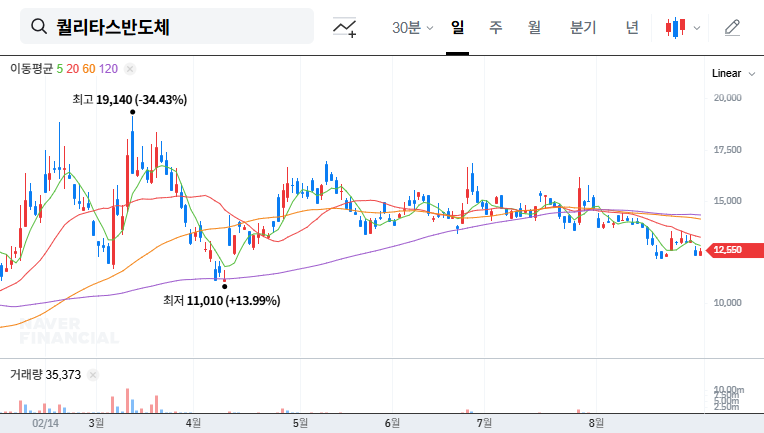
1. What Happened? Qualitas Semiconductor Announces ₩30 Billion CB Issuance
Qualitas Semiconductor has decided to issue ₩30 billion in private convertible bonds (CBs). These CBs have a 0% coupon rate and maturity rate, a conversion price of ₩12,942 (approximately 120 times the current share price), and a payment date of September 10, 2025. The conversion period runs from September 10, 2026, to August 10, 2030. Key investors include IGIS Multi Plus Private Equity Trust No. 2 and IBK Securities related private equity trusts.
2. Why the CB Issuance? Securing Funding and Driving Growth
Qualitas Semiconductor is securing its technological competitiveness in the high-speed interconnect IP market, riding on the growth of promising future industries like AI, data centers, and chiplets. However, continuous sales decline and operating losses since 2023 have created an urgent need for funding. The proceeds from this CB issuance will be used for research and development, business expansion, and improving financial structure. The participation of private equity funds is a positive signal, indicating confidence in the company’s growth potential.
3. What’s Next? Analyzing Opportunities and Risks
- Positive Impacts: Securing operating funds, improving financial structure, enhancing credibility through investor attraction
- Negative Impacts: Potential equity dilution with future share price increases, potential interest burden, negative perception as a loss-making company, and risks related to exchange rate and interest rate fluctuations
4. What Should Investors Do? Key Checkpoints
Investors should carefully assess the current financial situation and the potential for equity dilution, while also considering Qualitas Semiconductor’s growth potential and technological competitiveness. Continuous monitoring of the use of proceeds from the CB issuance, strengthening of core technological competitiveness, efforts to improve profitability, and management of equity dilution is crucial.
Frequently Asked Questions (FAQ)
What are Convertible Bonds (CBs)?
Convertible bonds are issued as debt but give the holder the option to convert them into shares of the issuing company’s stock after a certain period. Investors can receive interest payments or convert the bonds to profit from share price appreciation.
How will this CB issuance affect Qualitas Semiconductor’s stock price?
In the short term, securing funds could have a positive impact. However, in the long run, if the convertible bonds are converted into shares, it could lead to equity dilution and potentially lower the stock price.
What should investors be cautious about?
Investors should carefully review the company’s financials, growth strategy, and terms of the CB issuance before making investment decisions. Key factors to consider include the conversion price, conversion period, and interest rate.

